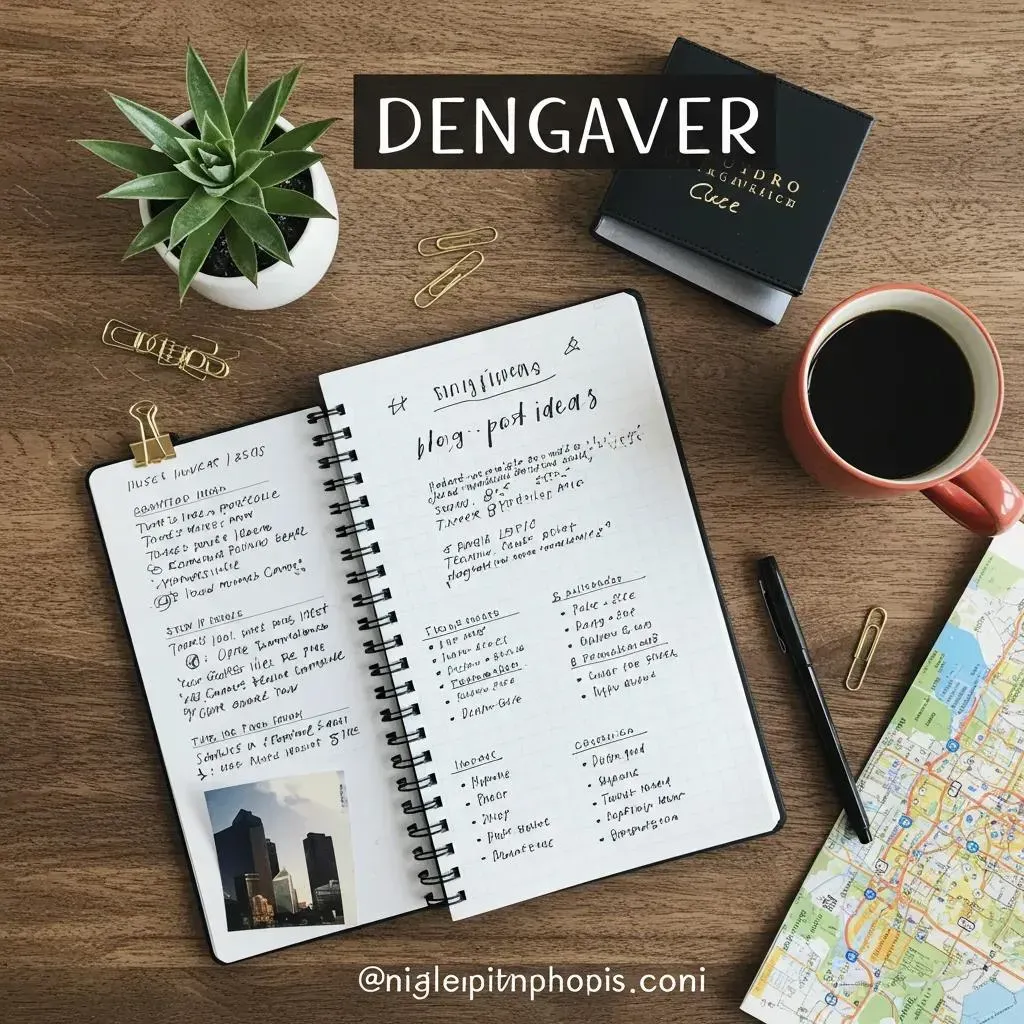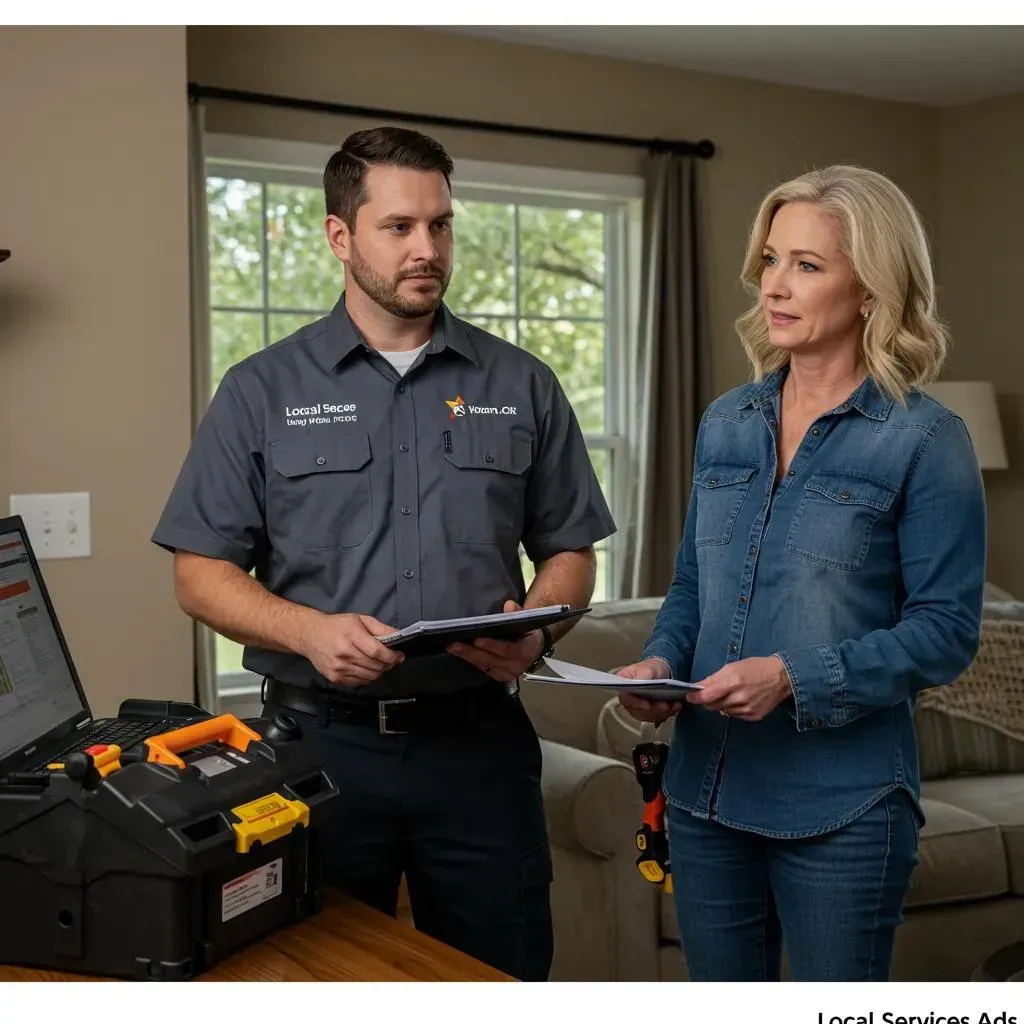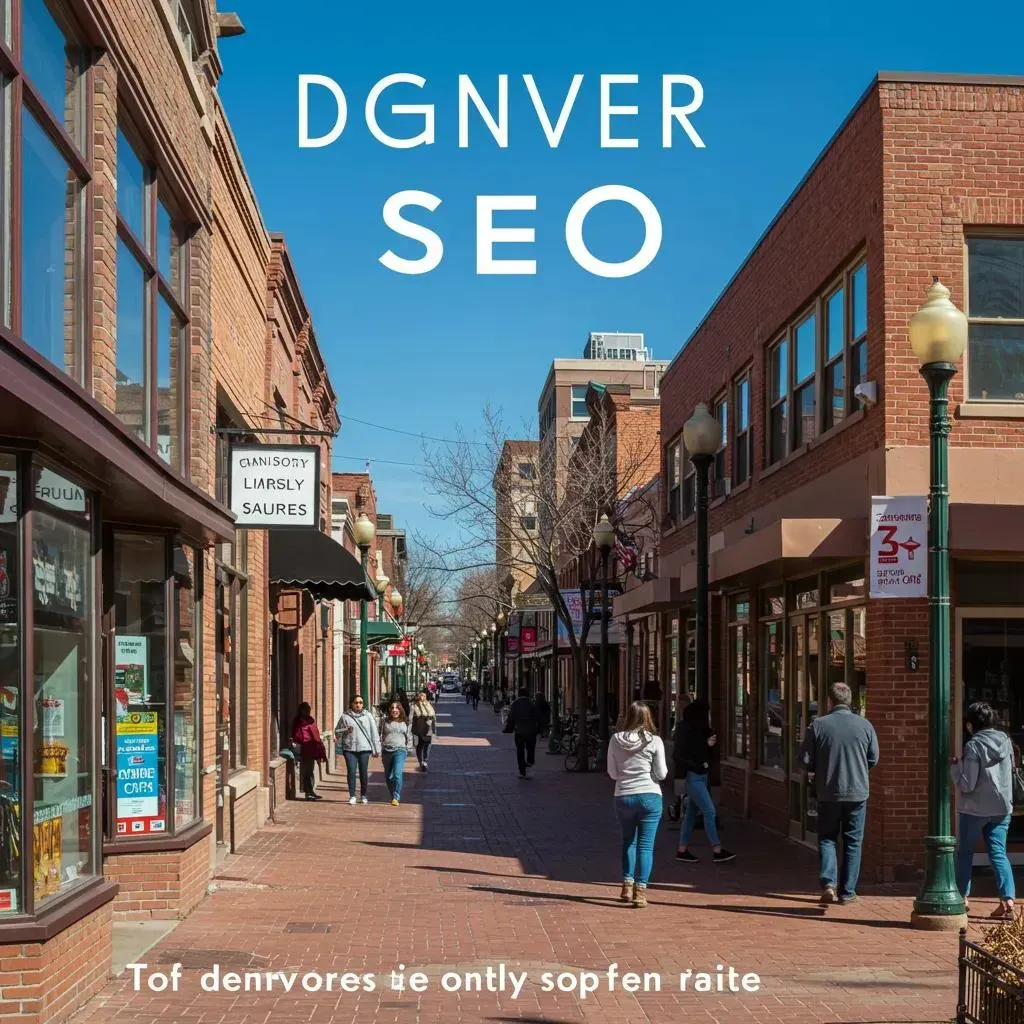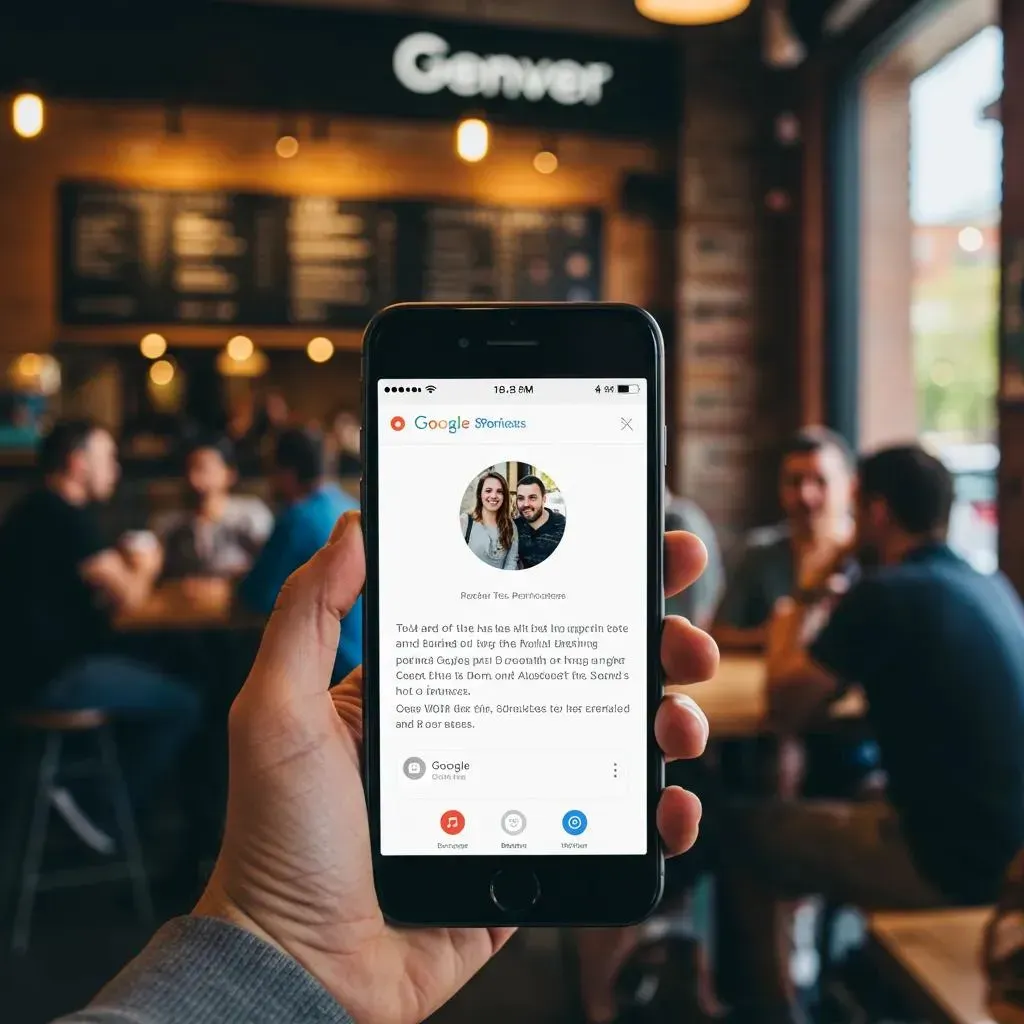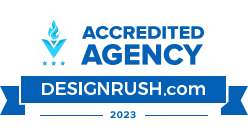The Ultimate List of Denver Citations & Directories (Updated Quarterly)
The Ultimate List of Denver Citations & Directories for Local SEO Success

Denver citations—mentions of your business name, address, and phone across the web—are a foundational signal that improves local visibility and trust for Denver businesses when maintained correctly. This quarterly-updated guide explains what Denver citations are, why they matter for local SEO, and exactly which general, niche, government, and review directories Denver businesses should prioritize in 2025. You will get step-by-step instruction to audit, claim, format, and maintain citations, plus hands-on examples for schema and Google Business Profile alignment. The article maps directory priorities by industry and neighborhood, supplies three EAV tables for rapid comparison, and delivers checklists to run quarterly citation audits that preserve NAP consistency and drive measurable GBP outcomes. Read on to learn practical submission steps, schema snippets, and monitoring KPIs so your Denver business can capture more Local Pack visibility and convert nearby searchers into leads.
What Are Denver Citations and Business Directories?
Denver citations are structured or unstructured mentions of a business’s NAP (Name, Address, Phone) and optionally other details like categories and hours across local directories and platforms, and they work by signaling local relevance and trust to search engines. Citations function as external references: when multiple reputable directories report matching NAP and category data, search engines infer reliability and local relevance, which supports Local Pack placement and organic map visibility. The key benefit for Denver businesses is improved discoverability for neighborhood searches and category queries, especially when citations are paired with structured data and a well-optimized Google Business Profile. Understanding citation types and their mechanisms helps you prioritize directories that matter most for your category and geography. The next section breaks down citation impacts on ranking signals and identifies the primary entities that shape Denver local SEO.
How Do Citations Impact Denver Local Search Rankings?
Citations impact local rankings primarily through NAP consistency, authority signals from directory domains, and correlation with review and structured-data signals that inform relevance. When search engines find consistent NAP across high-authority Denver and national directories, the LocalBusiness entity becomes more credible; inconsistent entries introduce noise that can reduce rank and confuse GBP matching. Citations also amplify category relevance—industry-specific directories help reinforce your primary service categories—while review presence on citation sources adds sentiment data that influences user click-through and conversion. Regularly auditing citation authority and alignment with website structured data reduces errors and directly supports better Local Pack positions for neighborhood-targeted searches in Denver. Understanding these mechanisms leads naturally into the key local SEO entities you must manage.
Which Key Entities Define Denver Local SEO?
Several core entities form the backbone of Denver local SEO: the LocalBusiness schema on your website, the Google Business Profile, consistent NAP records across directories, and review platforms that supply sentiment and engagement signals. LocalBusiness schema properties—name, address, telephone, geo-coordinates, and openingHours—help search engines associate on-site data with external citations, improving entity resolution. Google Business Profile serves as the primary public representation that aggregates citation and review signals into Local Pack eligibility, while directories and review platforms (like review aggregators and local chambers) provide corroborating references. Managing these entities in concert—schema on site, verified GBP, and authoritative citations—creates a cohesive local knowledge graph that improves local relevance and user trust. Next we’ll list the highest-impact Denver directories to target in 2025 and how to prioritize them by category.
What Are the Top Denver Local Business Directories to Use in 2025?

Targeting the right directories helps Denver businesses build trust signals and local relevance efficiently; prioritize authoritative multi-industry directories first, then add niche and government sources relevant to your sector. The directories below are categorized for scannability and include submission guidance so you can allocate effort and budget where it moves the needle. Use quarterly timestamps and a simple changelog to track which directories were added or removed in each audit cycle; keeping a public update date for your hub improves transparency and internal tracking. The table that follows provides a compact comparison of common directory attributes useful for Denver businesses to scan and prioritize.
Compare general directory attributes to decide submission order.
- Major Multi-Industry Directory
- Category: General directory
- Free / Paid: Free with paid upgrade options
- Authority / Why it matters: High domain authority with wide citation reach across industries — strengthens overall NAP consistency.
- Submission process: Create or claim your business profile and verify via email or phone.
- Local Denver Chamber or City Listing
- Category: Government or local resource directory
- Free / Paid: Typically free
- Authority / Why it matters: Offers high local trust and is often used for verification in Google Business Profile (GBP) and map citations.
- Submission process: Submit business name and proof of locality (e.g., address or license).
- Popular Review Platform
- Category: Review-based directory
- Free / Paid: Free
- Authority / Why it matters: Centers on user reviews and sentiment, which strongly influence conversions and GBP performance.
- Submission process: Claim your profile and ethically request reviews from genuine customers.
- Industry-Specific Directory
- Category: Niche or sector-focused directory
- Free / Paid: Varies by industry and visibility tier
- Authority / Why it matters: Reinforces category and topical relevance, boosting local and industry-specific SEO.
- Submission process: Submit credentials, certifications, and detailed service descriptions relevant to your niche.
This comparison helps you sort directories by authority and submission complexity; prioritize high-authority multi-industry directories, local government listings, and key review platforms first, then niche directories by vertical. The next subsections list specific general directories, niche picks per industry, and how government/review sites enhance citation profiles.
Which General and Multi-Industry Denver Directories Should You Target?
General directories deliver broad citation reach and often serve as primary sources for GBP verification and aggregator feeds, so claim and verify them early in your audit plan. Focus on directories that accept detailed profiles (categories, services, photos) and support structured data or rich descriptions to increase contextual signals for Denver-specific queries. Prioritize free claims when possible and consider paid features only when they add distribution or lead generation features that match your conversion goals. When submitting, use consistent NAP formatting and add neighborhood descriptors in the description field to improve local targeting and avoid duplicate entries.
- General directories to claim first include multi-industry sites that feed data to aggregators.
- When claiming, ensure the profile contains consistent category selection and high-quality photos.
- Avoid creating multiple partial listings—consolidation is more valuable than duplication.
Summary: Start with authoritative multi-industry directories, perfect the NAP and categories there, and use those canonical entries to propagate consistent data to niche sources.
What Are the Best Niche and Industry-Specific Denver Directories?
Niche directories strengthen category relevance by associating your business with targeted industry taxonomies that search engines use to match intent with local supply. For healthcare, legal, or home services, prioritize directories that include licensure fields, service areas, and appointment links. Hospitality and restaurants benefit from platforms that surface menus, reservations, and neighborhood tags. Prioritize niche listings by expected referral traffic, the directory’s relevance to your services, and the effort required to maintain the profile. Adding niche citations complements general listings and improves relevance for specialized Denver searches.
- Healthcare providers should use directories that list credentials and specialties.
- Restaurants and hospitality businesses should include menus, photos, and neighborhood tags.
- Home services benefit from directories that allow service area polygons and verified licenses.
Summary: Use niche directories to deepen category signals after securing broad coverage on general platforms, and maintain consistent NAP and category data across both.
How Do Government and Review Sites Enhance Denver Local Citations?
Government and official local resources provide high-trust signals that strengthen a business’s local legitimacy, while review sites add qualitative user signals that influence click-through and conversion. Listings in local chambers, municipal business directories, or licensing boards are often treated as authoritative references and can be used to resolve conflicts when aggregator data differs. Review platforms provide volume, recency, and sentiment metrics that search engines and users use to judge local providers; active review management paired with citations improves both ranking and conversions. Use government listings to anchor your NAP and review platforms to amplify trust and actionable user feedback in local searches.
- Claim government and municipal listings as they often carry verification weight.
- Encourage and manage reviews ethically on major review platforms.
- Cross-reference government listing details with your on-site LocalBusiness schema.
Summary: Government listings validate location and legitimacy, while review sites supply user-driven trust signals; both should be part of a balanced citation strategy.
How Do You Build and Optimize Denver Citations for Maximum Local SEO Impact?
Building and optimizing citations begins with a comprehensive audit, followed by prioritized claiming, structured-data alignment, and a maintenance cadence that prevents drift—this process reduces errors and amplifies local relevance. An initial audit identifies inconsistent NAP entries, duplicates, and missing high-authority listings; next, claim or create canonical profiles and standardize formatting across platforms. Adding LocalBusiness schema on your website and matching category and keyword usage in directory descriptions helps search engines link your on-site entity to off-site citations. Finally, schedule quarterly audits to re-verify high-impact listings and check aggregator feeds for drift.
Below is a practical EAV-style checklist mapping essential citation elements to their impact and optimization actions.
Business Name (NAP)
- Why it matters: Acts as the primary identifier for entity recognition and consistency across directories.
- Optimization / Example: Use your official legal or brand name consistently; avoid adding extra keywords or location stuffing (e.g., use “Lingows Media” not “Lingows Media Denver SEO Agency”).
Address
- Why it matters: Serves as the geo anchor that establishes local relevance for search engines.
- Optimization / Example: Use a standardized, formatted address and include the neighborhood when appropriate (e.g., “LoDo, Denver”).
Phone Number
- Why it matters: Confirms contact authenticity and supports conversion tracking.
- Optimization / Example: Use
one tracked number per location, formatted consistently across all listings (e.g.,
(303) 555-1234).
Category
- Why it matters: Defines service relevance and helps directories and Google match your business to user intent.
- Optimization / Example: Select a primary category that matches your Google Business Profile and supporting niche directories (e.g., “Digital Marketing Agency”).
Description
- Why it matters: Adds keyword and neighborhood context to strengthen local search signals.
- Optimization / Example: Write a natural, localized description that includes core services and nearby neighborhoods (e.g., “Providing SEO and web design for businesses across LoHi, RiNo, and Downtown Denver”).
This EAV mapping shows how aligning each element to a concrete action improves entity resolution and reduces conflict during aggregation. The step-by-step list below outlines the audit and build workflow optimized for featured-snippet capture.
- Audit NAP: Inventory all existing mentions and flag inconsistencies.
- Claim & Verify: Claim high-authority listings and complete profile fields.
- Standardize Formatting: Normalize name, address, phone, and categories.
- Add Structured Data: Implement LocalBusiness schema on the website.
- Schedule Quarterly Audits: Re-check top listings and update any changes.
After you complete these steps, monitor for duplicates and aggregator propagation issues monthly to maintain long-term consistency. For Denver businesses seeking an expert implementation example, an agency-level approach typically combines manual claims, schema markup, and automated monitoring; one Denver-based provider uses quarterly audits, NAP normalization, and structured-data checks to maintain citation hygiene while automating detection of new conflicting entries. That practical example illustrates how combining manual quality checks with automation preserves citation integrity without constant manual rework.
How Can You Use Google Business Profile and Reviews to Complement Denver Citations?
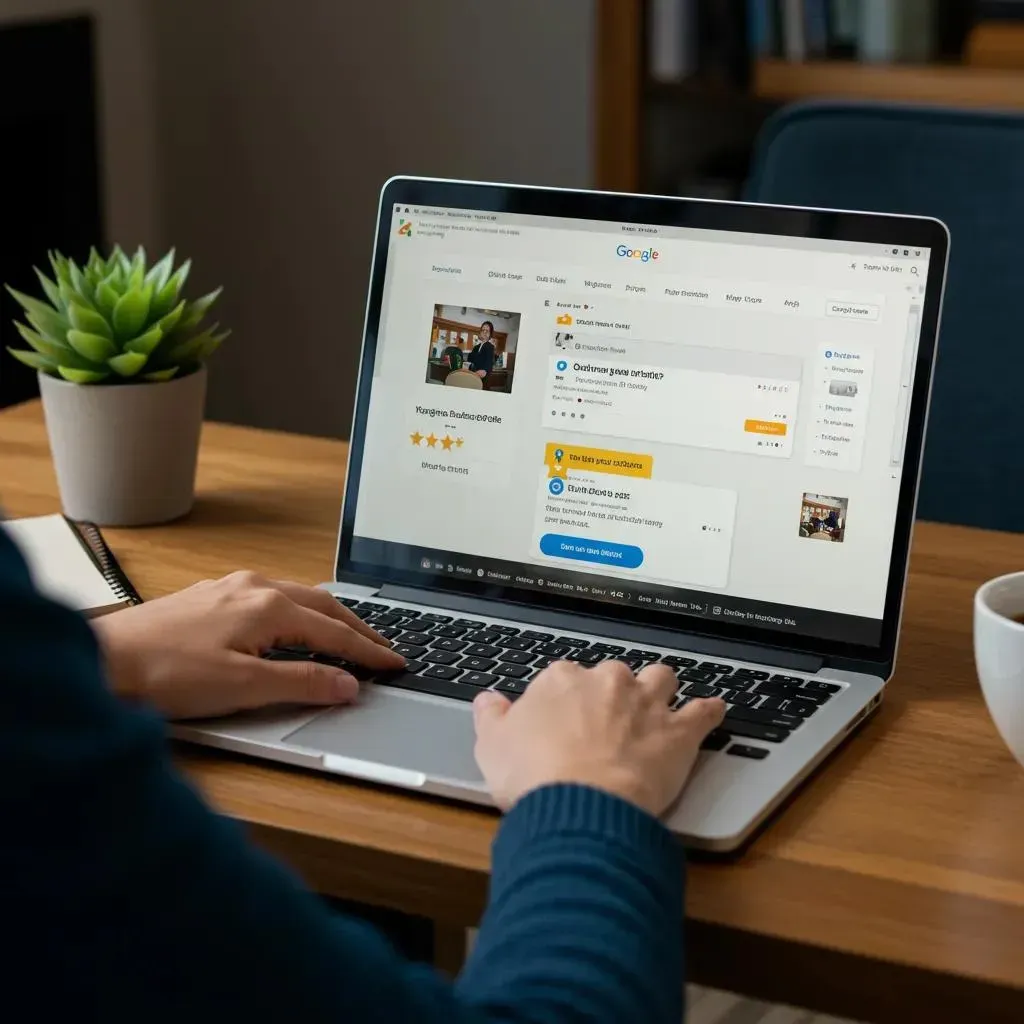
Google Business Profile and reviews are complementary to citations because GBP aggregates citation consistency, review sentiment, and engagement metrics into the Local Pack algorithm that drives map visibility. A fully optimized GBP reinforces on-site LocalBusiness schema and authoritative citations by providing real-time signals—photos, posts, service lists, and high-quality reviews—that searchers see first. Reviews contribute volume, recency, and sentiment signals; responses to reviews supply engagement signals and allow businesses to inject local keyword context into public replies. Connecting GBP insights to your citation audit helps prioritize which listings to maintain for maximum return on visibility and leads.
The following table links GBP-related actions and metrics to where they appear and recommended KPI frequency.
| Metric or Action | Where it shows up | Recommended KPI / Frequency |
|---|---|---|
| Profile Completeness | GBP dashboard & Local Pack | 100% fields filled; review monthly |
| Photo uploads | GBP photos & search results | Add 5–10 new photos quarterly |
| Review volume & recency | GBP reviews & Local Finder | Target steady monthly review growth |
| Post engagement | GBP posts & local results | Post weekly; measure clicks and calls |
| Q&A management | GBP Q&A section | Answer within 72 hours; monitor weekly |
What Are Best Practices for Optimizing Your Denver Google Business Profile?
Optimize your GBP by completing all fields with Denver-focused content, selecting accurate categories, and using photos and posts to signal current activity and neighborhood relevance. Include service lists and attributes that match directory categories and LocalBusiness schema to maintain consistent entity representation across platforms. Use posts to highlight local events, promotions, or neighborhood landmarks that tie your business to Denver micro-geographies, and upload high-quality photos that reflect your offerings and location. Regularly monitor GBP insights—views, search queries, and customer actions—to prioritize citation work that aligns with actual search behavior in Denver.
- Complete every profile field and keep category selections consistent with directories.
- Use neighborhood descriptors in descriptions and posts to capture hyperlocal searches.
- Maintain a steady cadence of photos and posts to demonstrate activity and relevancy.
Summary: A well-maintained GBP amplifies citation credibility and converts search visibility into measurable inquiries; tie GBP content to your citation audit to close the loop.
How Do Customer Reviews Influence Denver Local Search Rankings?
Customer reviews influence local search through volume, recency, and sentiment, which together shape perceived quality and encourage higher click-through from local SERPs, thereby reinforcing ranking signals. Fresh, positive reviews signal to search engines and users that a business is active and reliably serving customers, while thoughtful responses to reviews demonstrate engagement that can improve conversion rates. Review-gathering should be systematic and ethical: request feedback after completed transactions and make leaving a review simple without incentivizing falsification. Templates for review responses help maintain tone and efficiency while addressing negative feedback constructively to preserve reputation.
- Encourage reviews after service completion and respond promptly to both positive and negative feedback.
- Track review velocity and sentiment as KPIs linked to citation health and Local Pack performance.
- Use review insights to identify categories or keywords to emphasize in citations and schema.
Summary: Reviews amplify citation trust and influence user behavior; integrating review management with citation audits delivers measurable improvements in local visibility.
Why Choose Lingows Media for Denver Citation Building and Local SEO Services?
Lingows Media is a Denver-based digital marketing agency that specializes in local SEO and Google strategies, combining web design, foundational SEO builds, and AI-driven marketing solutions to help businesses improve local visibility and lead generation. As a Google Premier Partner and DUDA Fulfillment Power Partner, the agency aligns platform expertise with local citation strategies to deliver measurable ROI-focused outcomes for Denver clients. Their approach emphasizes quarterly citation audits, NAP normalization, and automation to scale consistency while preserving manual quality checks—an approach that dovetails directly with the audit and maintenance workflows outlined earlier in this guide.
How Has Lingows Media Helped Denver Businesses Improve Local Rankings?
Lingows Media focuses on measurable outcomes such as lead generation and local ranking improvements by combining foundational SEO with targeted local strategies; their reported positioning as a Google Premier Partner reflects platform-level expertise useful for managing GBP and local campaigns. The agency emphasizes tying citation work to ROI through conversion-tracking alignment and quarterly audits, ensuring that citation hygiene supports actual business goals rather than being a purely technical exercise. While specific client details are not provided here, the agency’s stated capabilities—AI-powered content strategies, automation for audits, and local SEO specialization—show how a coordinated citation and GBP program can translate into more local visibility and actionable leads.
Summary: For Denver businesses that prefer expert-led implementation, a local agency that couples technical SEO, citation audits, and GBP optimization provides a structured path to improving local performance while tracking ROI and lead outcomes.
What AI-Driven Strategies Does Lingows Media Use for Denver Local SEO?
Lingows Media leverages AI-powered content strategies and automation to scale content production and to automate parts of the audit process—two capabilities that help maintain citation consistency and local keyword relevance without manual overhead. AI can assist by aggregating citation data, flagging inconsistencies, generating localized descriptions for directory entries, and monitoring review sentiment to prioritize engagement tasks. In practice, automation reduces the time needed for quarterly audits and frees human experts to resolve complex entity conflicts or to craft high-quality on-site schema and GBP content that aligns with local search intent. These AI capabilities, combined with foundational SEO, produce efficiency gains and consistent citation hygiene for Denver clients.
Summary: AI-driven monitoring and content generation support the quarterly audit cadence and help maintain NAP consistency at scale while preserving hands-on oversight for high-impact listings.
What Are the Latest Denver Local SEO Trends and Citation Updates for 2025?
In 2025, local SEO continues to evolve with greater emphasis on AI-driven data aggregation, neighborhood-level relevance, and the interplay between structured data and user-generated signals like reviews; these trends require more frequent audits and strategic prioritization of local directories. New local directories and closures are part of the normal lifecycle; maintaining a quarterly update process and changelog ensures your citation hub remains current and accurate. Increasingly, local intent queries factor in hyperlocal signals such as neighborhoods and landmarks, so citations and descriptions that include neighborhood keywords can improve micro-geographic relevance. The following subsections cover AI impacts, directory lifecycle monitoring, and a practical quarterly audit framework to stay competitive.
How Is AI Changing Local SEO and Citation Building in Denver?
AI improves local SEO by automating data aggregation across directories, detecting inconsistent NAP entries, analyzing review sentiment, and suggesting local keyword optimizations for directory descriptions and schema. These capabilities let businesses detect citation drift faster, prioritize high-impact corrections, and scale localized content production without sacrificing quality. AI also aids in monitoring new directories and public data sources to surface emerging citation opportunities and closures that affect citation coverage. Implementing AI-assisted monitoring alongside quarterly manual reviews ensures both speed and accuracy in maintaining citation integrity and local relevance.
This leads to the need for practical monitoring of new or closed directories and a changelog process to manage the hub.
Local SEO Optimization for Retailers: Google Local Pack Strategies
The Purpose of the presented research is to substantiate the importance of the local optimization of the retailer’s business for search engines to increase organic traffic; to represent insights and give practical recommendations for retailers regarding local optimization of their business in Google as part of an effective marketing strategy; to create the typical valid data micromarking (by the example of the Ukrainian retailer), which will contribute to an advantageous placement in the Local Pack in comparison with competitors, and increase organic traffic and conversion.
Business optimization in the digital age: Insights and recommendations, A Natorina, 2020
What New Denver Directories Have Emerged and Which Have Closed?
Directories appear and disappear as platforms pivot or consolidate; tracking these changes requires a simple verification process: validate the directory’s authority, check for Denver-specific coverage, and confirm that the platform’s data feeds to major aggregators. Set up a changelog with columns for directory name, date checked, status (active/closed), and action required; review this log each quarter to ensure your hub reflects the current landscape. Use monitoring tools and periodic manual checks of high-authority listings to detect closures and to remove or archive dead links from your internal directory inventory.
- Monitor directory health and aggregator feeds quarterly to prevent stale citations.
- Archive closed directories and reallocate effort to active, authoritative sources.
- Keep a changelog with timestamps to document audit activity and decisions.
Summary: A disciplined verification and changelog approach ensures your citation hub stays accurate and actionable as directories evolve.
How Can Denver Businesses Stay Ahead with Quarterly Citation Audits?
A quarterly audit checklist helps Denver businesses maintain NAP consistency, structured data alignment, and GBP health while tracking KPIs that reflect real business impact; prioritize high-traffic listings monthly and run a full audit every quarter. Key quarterly tasks include claiming and verifying new high-authority listings, reconciling duplicates, checking LocalBusiness schema against directory entries, and analyzing GBP insights and review performance. Track KPIs such as Local Pack rankings, GBP views and actions, citation count and NAP consistency score, and conversion rate from local search to ensure the audit ties back to measurable outcomes.
- Quarterly Full Audit: Verify top 50 listings, update schema, reconcile duplicates.
- Monthly Spot Checks: Monitor GBP changes and high-traffic directory entries.
- KPI Review: Track Local Pack rank, GBP calls/requests, citation count, and NAP consistency.
Summary: Regular quarterly audits, supplemented by monthly monitoring of high-impact listings, create a resilient citation program that supports local rankings and measurable lead generation. For assistance implementing such a cadence and turning audit findings into action, consider consulting a local specialist experienced in automated audits and Local SEO workflows like those described earlier, which can streamline the process while keeping strategy aligned with business goals.
Frequently Asked Questions
What is the difference between structured and unstructured citations?
Structured citations are listings that follow a specific format, typically found in online directories, where the business name, address, and phone number (NAP) are clearly defined. Unstructured citations, on the other hand, may appear in blog posts, articles, or social media mentions without a standardized format. Both types are important for local SEO, as they contribute to a business's online presence and credibility, but structured citations are generally more reliable for search engines to interpret and validate.
How often should I audit my Denver citations?
It is recommended to conduct a comprehensive audit of your Denver citations at least once every quarter. This regular schedule allows you to identify and correct inconsistencies in your NAP information, remove duplicates, and ensure that your listings are up-to-date with the latest business information. Additionally, quarterly audits help you track the performance of your citations and make necessary adjustments to improve your local SEO strategy and visibility in search results.
Can I use the same NAP information across different platforms?
Yes, using the same NAP information across different platforms is crucial for maintaining consistency, which is a key factor in local SEO. Consistent NAP data helps search engines verify your business's legitimacy and improves your chances of ranking higher in local search results. Ensure that your business name, address, and phone number are identical on your website, Google Business Profile, and all citation sources to avoid confusion and enhance your local visibility.
What role do reviews play in local SEO for Denver businesses?
Reviews significantly impact local SEO by influencing both search engine rankings and consumer behavior. Positive reviews enhance your business's credibility and can improve your visibility in local search results, while the volume and recency of reviews are also considered ranking factors. Actively managing and responding to reviews not only boosts your reputation but also encourages more customers to leave feedback, which can further enhance your local SEO efforts and attract new clients.
How can I track the effectiveness of my citation strategy?
To track the effectiveness of your citation strategy, monitor key performance indicators (KPIs) such as local search rankings, website traffic from local searches, and the number of calls or inquiries generated from your Google Business Profile. Tools like Google Analytics and local SEO software can help you analyze these metrics. Additionally, conducting regular audits of your citations will allow you to assess their accuracy and impact on your overall local SEO performance.
What should I do if I find incorrect information in my citations?
If you find incorrect information in your citations, it is essential to take immediate action to correct it. Start by claiming the listing on the respective directory or platform, then update the NAP information to ensure accuracy. After making changes, monitor the listing to confirm that the updates are reflected. Regular audits can help you catch these discrepancies early, preventing potential negative impacts on your local SEO and customer trust.
Are there any tools available to help manage citations?
Yes, there are several tools available to help manage citations effectively. Tools like Moz Local, BrightLocal, and Yext can assist in auditing, claiming, and monitoring your business listings across various directories. These platforms often provide features for tracking NAP consistency, managing reviews, and analyzing local search performance, making it easier for businesses to maintain their citation strategy and improve local SEO outcomes.
Conclusion
Building and maintaining accurate Denver citations is essential for enhancing local visibility and trust among potential customers. By prioritizing authoritative directories and ensuring NAP consistency, businesses can significantly improve their chances of appearing in the Local Pack and attracting nearby searchers. Regular audits and strategic management of citations not only reinforce credibility but also drive measurable outcomes for lead generation. Start optimizing your local SEO strategy today by exploring our expert services tailored for Denver businesses.

